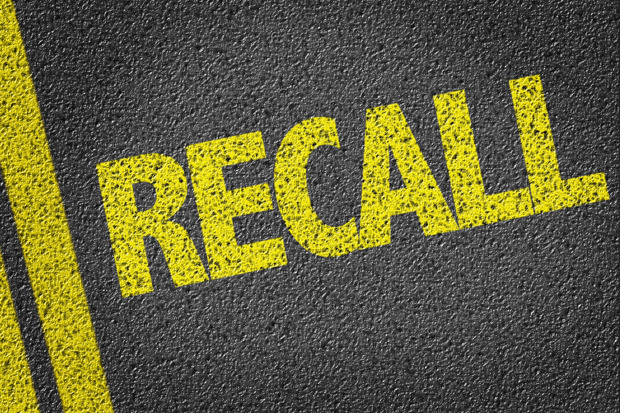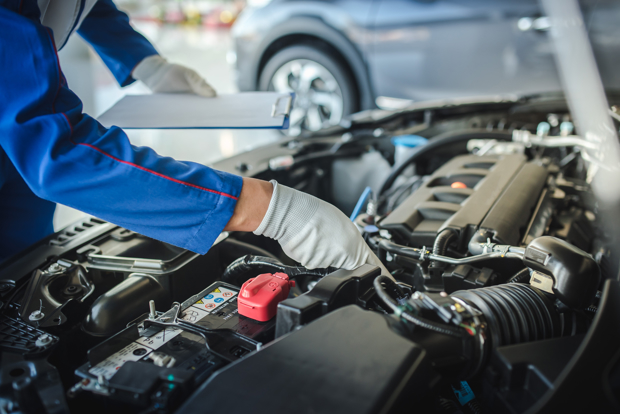Car recalls: Check if your car is affected
Millions of cars are recalled every year, with issues ranging from faulty windscreen wipers to major safety faults. But how do you check if your vehicle has a recall?

- How to check if a car has a recall
- What does a car recall actually mean?
- Find out if you have to pay for recall work
A car recall may might sound alarming, but they are extremely common and arise when a potentially dangerous issue is identified with a vehicle. When this happens the manufacturer will issue a national recall for all affected models.
Reasons for safety recalls can vary from small technical issues with windscreen wipers to major safety faults with airbags. In all cases, the vehicle will need to be checked by the manufacturer. This will usually take place at a local dealership.
How do I check if my car has been recalled?
If your car is second-hand or if your contact details aren't up to date then the manufacturer might not be able to reach you.
If you're unsure whether your car has been the subject of a recall, the best thing to do is to check at the DVSA recall search page.
Alternatively, an MoT history check with the DVLA will also highlight any outstanding recalls
You can also contact a dealership to check if there's anything outstanding for your vehicle. You'll need to give them your registration details and possibly your Vehicle Identification Number (VIN). This can be found on a plate under the bonnet or sometimes on the bottom of the windscreen.
We also list vehicle recalls in all our car reviews.
What is a car recall?
Manufacturers sometimes issue what are called technical service bulletins - or TSB for short - so dealers can carry out remedial work when a car is in for service work. However, when the problem is safety-related, a full recall is the only way to ensure all owners are contacted.
The manufacturer will get in touch with the owners of any affected vehicles, using details from the DVLA. If your car needs to be recalled you should get a letter, phone call or email.
The correspondence will explain what the issue is, how the manufacturer plans to fix it and who to contact to arrange for any checks or work to be carried out.
Should I be worried if my car has a recall?
In most cases a recall is issued in anticipation of a problem that might arise – so there's usually minimal risk. However, the manufacturer should make it clear if there is any danger and, in rare cases, you may be asked not to drive until the car has been fixed.
While there are some instances - such as the 2015 recall of Vauxhall Zafira where there was a risk of fire and exploding airbags - that will cause owners concern, for the most part recalls are for smaller fixes to ensure reliability.

What do you need to do next?
If recall work is required, you will need to make an appointment with your local dealer. It has to be a franchised dealer – independent garages can’t carry out recall work.
Do you have to pay for recall work?
No. Recall fixes and checks are carried out free of charge. Although dealers may try to get you to undertake other work on your car when it's in for recall work. Only agree and pay for work that you're happy to have carried out and that you think your car requires.
What if the manufacturer doesn't contact you?
If your car is second hand or if your contact details aren't up to date then the manufacturer might not be able to reach you.
But you can check for recalls that affect your car on the DVSA website. You can also contact a dealership to check if there is anything outstanding for your vehicle. You'll need to give them your registration details and possibly your Vehicle Identification Number (VIN).
Is there a time limit on recall work?
If you find out your vehicle needs recall work, it's sensible to get it fixed quickly. But if, for example, you buy a used car and discover it was meant to be recalled several years ago and wasn't, then the manufacturer is still obliged to fix the problem for free - no matter how old the vehicle is or when the recall was issued.
Will I get a courtesy car while recall work is carried out?
It depends on the length of time it takes for recall work to be carried. Depending on the fault it could be anything from a five-minute fix to something that takes several days.
You're entitled to the use of a courtesy car if the recall work is expected to take a long time, but don't expect a dealer to always offer - you may have to be forthright and ask.
If there's a delay on parts needed for the work, there's a chance your car could be off the road for a longer period of time. In this case you will likely be offered a hire car, but it won't necessarily be a like for like match for your car. In this situation we'd suggest complaining to the dealer and manufacturer in question in order to get a car that suits your requirements.
Will a recall affect the value of your car?
As long as you have the work done, no it shouldn't do. But the bad press surrounding it could be another matter. The reputation of the second generation Vauxhall Zafira has arguably been damaged by incidents of fires caused by the heating system. While the risk is small, it's more than enough to put people off buying one.
In this case, prices have been affected and owner's might find it more difficult to sell. But generally, the only issue when selling would be if your car had been recalled and the work not carried out.
Is it illegal to ignore a car recall?
It is a legal obligation to ensure that your car is in a roadworthy condition - ignoring a safety recall could potentially mean that's not the case. In the event of an accident, caused by a fault that you have not had fixed, you could find yourself facing police charges.
Ignoring a safety recall could also invalidate your insurance.
In addition to the legal and insurance implications, the value of your car may diminish when you decide to sell it. Prospective buyers may be hesitant if they discover that safety recalls were overlooked, affecting the overall perception and value of the vehicle.
What to do if you're unhappy with a recall
Recalls are covered by a code of practice. If you’re unhappy with the process you should complain to the DVSA or your local Trading Standards.
